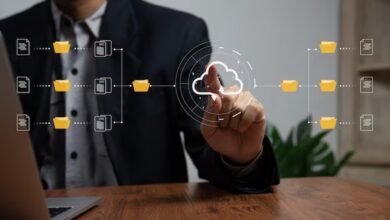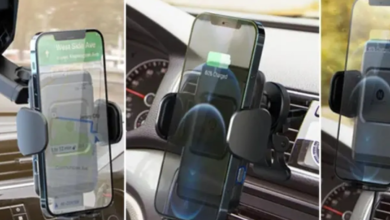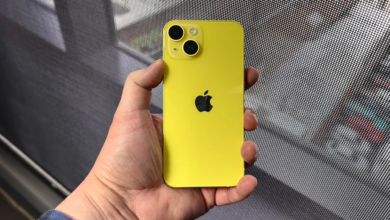The Impact of IoT and 5G on Businesses

In today’s rapidly evolving technological landscape, businesses must stay ahead of the curve to remain competitive. Two of the most transformative innovations in recent years are the Internet of Things (IoT) and 5G technology. These advancements are revolutionizing the way businesses operate, communicate, and deliver services. In this comprehensive article, we will delve deep into the impact of IoT and 5G on businesses, exploring their potential benefits and challenges.
Impact of IoT and 5G on Businesses
The convergence of IoT and 5G technologies has ushered in a new era of connectivity and innovation. This article explores how these technologies are shaping the business landscape.
Understanding IoT and 5G
Internet of Things (IoT):
IoT refers to the network of interconnected physical devices and objects that are embedded with sensors, software, and other technologies, allowing them to collect and exchange data over the internet. These devices can range from everyday objects like refrigerators and thermostats to industrial machinery and vehicles.
Read More: 5G: The Future of Mobile Connectivity 2023
Impact of IoT and 5G on Businesses: The key aspects of IoT include:
Connectivity: IoT devices are connected to the internet, allowing them to transmit data and receive instructions remotely. This connectivity enables real-time monitoring and control.
Data Collection: IoT devices gather data from their environment or from other connected devices. This data can include temperature, humidity, location, and much more.
Automation: IoT devices often have the capability to perform actions or make decisions based on the data they collect. For example, a smart thermostat can adjust the temperature based on occupancy and weather conditions.
Data Analysis: The data collected by IoT devices is valuable for businesses. Analyzing this data can provide insights into consumer behavior, product performance, and operational efficiency.
Applications: IoT has applications across various industries, including healthcare (remote patient monitoring), agriculture (precision farming), manufacturing (predictive maintenance), and smart cities (traffic management).
5G Technology:
Impact of IoT and 5G on Businesses: 5G, or the fifth generation of wireless technology, is the latest standard in mobile telecommunications. It represents a significant leap from its predecessor, 4G, in several key areas:
Speed: 5G offers much faster data speeds, allowing for quicker downloads and uploads. This is essential for bandwidth-intensive applications like streaming high-definition video and virtual reality.
Low Latency: Latency refers to the delay between sending a command and receiving a response. 5G dramatically reduces latency, making real-time communication and remote control of devices more seamless.
Network Capacity: 5G networks can handle a massive number of devices simultaneously, making it suitable for densely populated areas and the growing number of IoT devices.
Reliability: The reliability of 5G networks is crucial for applications that require constant connectivity, such as autonomous vehicles and critical healthcare services.
IoT and 5G Synergy:
The synergy between IoT and 5G is where the real magic happens. 5G’s high-speed, low-latency, and high-capacity network capabilities provide the ideal infrastructure for IoT devices to operate efficiently. Here’s how they complement each other:
Fast Data Transfer: 5G enables rapid data transfer, allowing IoT devices to transmit large amounts of data quickly. This is vital for applications like video surveillance and autonomous vehicles.
Real-time Responsiveness: The low latency of 5G ensures that commands sent to IoT devices receive immediate responses. This is crucial for applications like remote surgery and industrial automation.
Scalability: 5G’s ability to handle a massive number of connected devices simultaneously supports the proliferation of IoT devices in various industries.
In summary, IoT and 5G are transformative technologies with the potential to revolutionize businesses by improving connectivity, enabling data-driven decision-making, and facilitating automation. This synergy is driving innovation across multiple sectors and creating new opportunities for businesses to enhance their operations and customer experiences.
IoT in Business Operations
Impact of IoT and 5G on Businesses: IoT devices can optimize various aspects of business operations. From inventory management to predictive maintenance, IoT enhances efficiency and reduces costs.
Data Analytics and Decision-Making
The data generated by IoT devices is a goldmine for businesses. With the right analytics tools, companies can extract valuable insights to make informed decisions and predict market trends.
Security Concerns and Solutions
Impact of IoT and 5G on Businesses: As IoT adoption grows, so do security concerns. We’ll explore the challenges and solutions for safeguarding IoT networks and data.
IoT and Customer Experience
IoT and Customer Experience: A Revolution in Personalization
In today’s highly competitive business landscape, providing exceptional customer experiences is no longer a luxury—it’s a necessity. IoT plays a pivotal role in this endeavor by enabling businesses to understand, engage, and satisfy their customers in unprecedented ways.
Personalized Recommendations:
Impact of IoT and 5G on Businesses: IoT devices, such as smart speakers, wearables, and connected appliances, collect a wealth of data about user preferences, behavior, and habits. This data is a goldmine for businesses looking to offer tailored recommendations. For example, streaming services can suggest movies or music based on a user’s previous choices, while e-commerce platforms can recommend products aligned with a customer’s browsing history.
Improved Customer Support:
Impact of IoT and 5G on Businesses: IoT-enhanced customer support is another area where businesses are reaping benefits. Chatbots and virtual assistants, integrated with IoT data, can provide more context-aware and personalized assistance. For instance, if a customer contacts support with a technical issue, the support agent can access real-time data from the IoT device to diagnose and resolve the problem swiftly.
Enhanced Product Experiences:
Impact of IoT and 5G on Businesses: IoT extends the customer experience beyond the point of purchase. Smart products, such as connected cars and home automation systems, can continuously update and improve their functionalities through over-the-air updates. This ensures that customers always have access to the latest features and enhancements, leading to higher satisfaction and loyalty.
Predictive Maintenance:
Impact of IoT and 5G on Businesses: IoT-enabled predictive maintenance benefits both businesses and customers. In industrial settings, IoT sensors monitor machinery and equipment for signs of wear and tear. If an issue is detected, maintenance can be scheduled before a breakdown occurs, minimizing downtime and ensuring customers receive reliable services.
Proactive Issue Resolution:
Impact of IoT and 5G on Businesses: IoT can alert businesses to potential issues before customers even notice. For example, in the utilities sector, smart meters can detect irregularities in energy consumption patterns, indicating a possible problem with the customer’s infrastructure. Businesses can then proactively address the issue, preventing service disruptions and showing customers that their concerns are a priority.
Seamless Integration:
Impact of IoT and 5G on Businesses: IoT strives to create a seamless, interconnected ecosystem. This means that customers can transition between devices and platforms effortlessly. For example, a customer can start watching a movie on a smart TV, continue on a tablet, and finish on a smartphone without missing a beat. This continuity enhances the overall customer experience.
Challenges and Considerations:
Impact of IoT and 5G on Businesses: While IoT holds tremendous potential for enhancing customer experiences, it also comes with challenges. Chief among them are privacy and security concerns. Collecting and handling sensitive customer data require robust security measures and adherence to data protection regulations to maintain trust.
In conclusion, IoT is revolutionizing the way businesses engage with their customers. By harnessing the power of IoT to provide personalized recommendations, improve support, enhance product experiences, and proactively address issues, businesses can create memorable and satisfying customer interactions. As IoT continues to evolve, so too will the possibilities for businesses to elevate the customer experience to new heights.
5G and Mobile Workforce
Impact of IoT and 5G on Businesses: With 5G, businesses can empower their mobile workforce with faster and more reliable connections, enabling remote work and greater flexibility.
IoT and Supply Chain Management
Impact of IoT and 5G on Businesses: Discover how IoT is revolutionizing supply chain management, from real-time tracking to inventory optimization.
5G and Augmented Reality
Impact of IoT and 5G on Businesses: Explore the exciting possibilities of using 5G to enhance AR applications in industries like gaming, education, and healthcare.
IoT in Healthcare
Impact of IoT and 5G on Businesses: IoT is reshaping the healthcare industry, from remote patient monitoring to smart medical devices.
5G and Smart Cities
Impact of IoT and 5G on Businesses: Learn how 5G is powering the development of smart cities, improving transportation, energy management, and public services.
IoT and Environmental Impact
Impact of IoT and 5G on Businesses: Discover how IoT is helping businesses become more environmentally responsible by optimizing resource usage and reducing waste.
5G and Emerging Business Models
We’ll explore how 5G is enabling new business models and revenue streams across various industries.
Read More: Live in a rural area? Verizon 5G is about to get better for you
Conclusion
In the rapidly evolving landscape of technology and business, the fusion of IoT (Internet of Things) and 5G technology stands as a powerful catalyst for innovation. Throughout this article, we’ve explored the profound impact that these two transformative forces have on businesses across various sectors. As we conclude our journey, let’s recap the key takeaways and insights.
The impact of IoT and 5G on businesses is profound and multifaceted. These technologies are not just changing how businesses operate; they’re reshaping the very essence of what’s possible. By embracing this transformative synergy, businesses can write their own success stories, ushering in an era of innovation, connectivity, and enhanced customer experiences. The future beckons, and those who heed the call of IoT and 5G are poised to lead the way into a brighter tomorrow.
FAQs
How does 5G impact rural businesses with limited connectivity?
5G has the potential to bridge the connectivity gap for rural businesses, enabling them to access high-speed internet and compete more effectively.
Are there any privacy concerns associated with IoT adoption in businesses?
Yes, privacy concerns exist. It’s essential for businesses to implement robust security measures and adhere to data protection regulations.
What industries are benefiting the most from IoT and 5G integration?
Industries such as healthcare, manufacturing, logistics, and entertainment are among the primary beneficiaries.
How can businesses prepare for the transition to 5G and IoT technologies? Businesses should conduct thorough assessments, invest in compatible infrastructure, and provide training for employees.
What are the potential environmental benefits of IoT adoption in businesses?
IoT can lead to reduced energy consumption, lower emissions, and more sustainable business practices.











